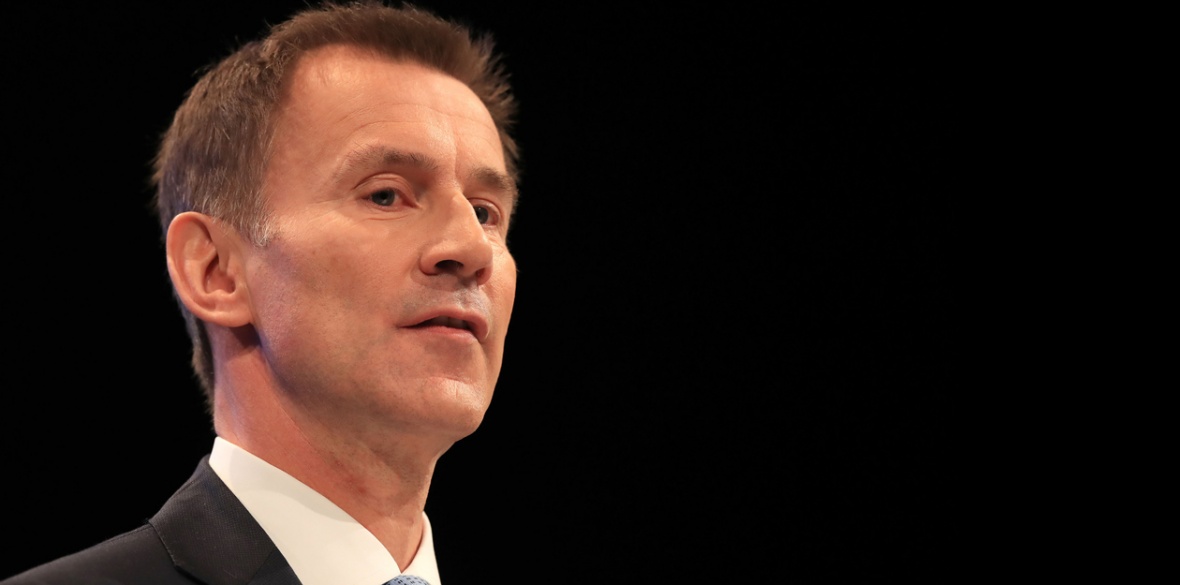This is the last article you can read this month
You can read more article this month
You can read more articles this month
Sorry your limit is up for this month
Reset on:
Please help support the Morning Star by subscribing here
FOREIGN Secretary Jeremy Hunt confirms through his cheerleading for Washington’s aggressive attitude to Russia that this Tory government’s overriding loyalty is to the White House.
What benefit will the twin albatrosses of higher military spending and anti-Moscow economic sanctions bring to the people of this country?
When US President Donald Trump parrots his “America First” watchword, he means it. He doesn’t give a toss about the effect his policies have on “special relationship” Britain.
Has Hunt forgotten that Trump is already set on damaging our economy, having imposed 25 per cent tariffs on exports of steel and aluminium to the US?
The US president has also adopted a “me or them” stance over his decision to abandon the Iran nuclear deal, threatening European companies that trade with Tehran with losing all links to US markets.
This is the same Trump who, based on a brief meeting in July, Hunt sees as “someone who does fundamentally believe there should be a rules-based order internationally.”
What Hunt omits is that Trump insists on being solely responsible for making the rules.
When independent states should be explaining to Trump as quietly and patiently as possible but as firmly as necessary that having the largest economy and most powerful armed forces does not confer the status of world dictator, Theresa May and her Foreign Secretary simply reiterate: “Yes, sir. Three bags full, sir.”
Hunt echoes White House rhetoric about the “need to strengthen and rebuild the Western alliance” as a caution to Russia and, possibly, others who don’t leap immediately to attention when the Stars and Stripes is run up the flagpole.
This is simply shorthand for all Nato member states to increase arms spending to a level of 2 per cent of economic output (GDP) or, as Trump told his allies in Brussels in July, even 4 per cent.
Demands for higher arms spending are music to the ears of such US military-industrial establishment mainstays as Boeing, Raytheon and McDonnell Douglas, all currently engaged in boosting profits by assisting Saudi Arabia’s attempted subjugation of resistance in Yemen, the Arab world’s poorest country.
To be sure, “defence” contracts could benefit British, French, Italian and German military contractors, but the US merchants of death would take the lion’s share.
After a decade of capitalist austerity imposed on Britain’s working people at the behest of the banks that sank the economy, working people need a pay rise and investment in our public services.
As Unite general secretary Len McCluskey points out in light of an unforeseen £2bn surplus on public-sector borrowing, “increased investment in the NHS, education, house building, local government and transport links” is vitally needed and affordable.
Shadow chancellor John McDonnell makes a similar point, insisting too on the need to “give workers a decent pay increase with our £10 Real Living Wage.”
Yet these options that are so vital to developing the economy and to help raise many working families from real poverty are disregarded by the Tories.
They are more interested in falling in behind Trump, boosting arms company profits and heightening tension by increasing sanctions against Russia, which can have only a dampening effect on economic growth.
Jeremy Corbyn will draw criticism for his measured call to “put the megaphones down” and begin “serious dialogue with Russia.”
The Labour leader is used to it by now and the historical record shows that he has invariably been proven right in resisting the knee-jerk pro-conflict clamour spouted by politicians and media.











